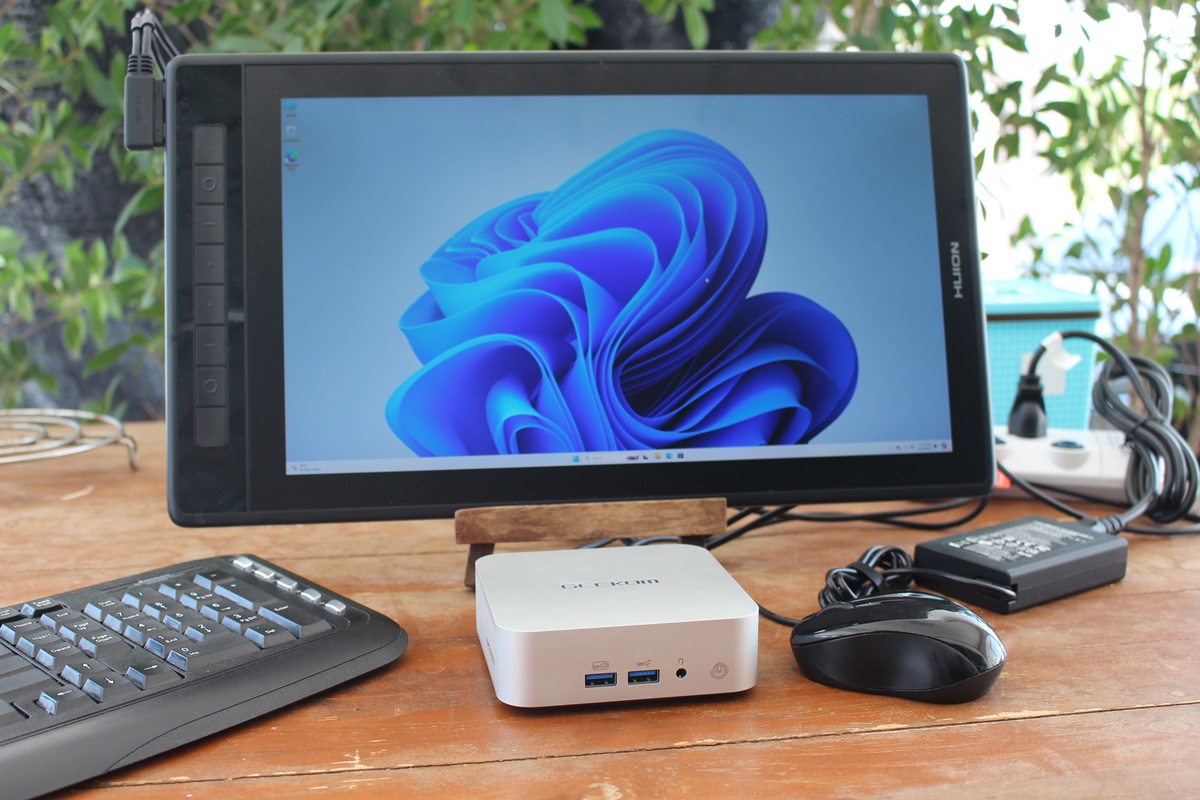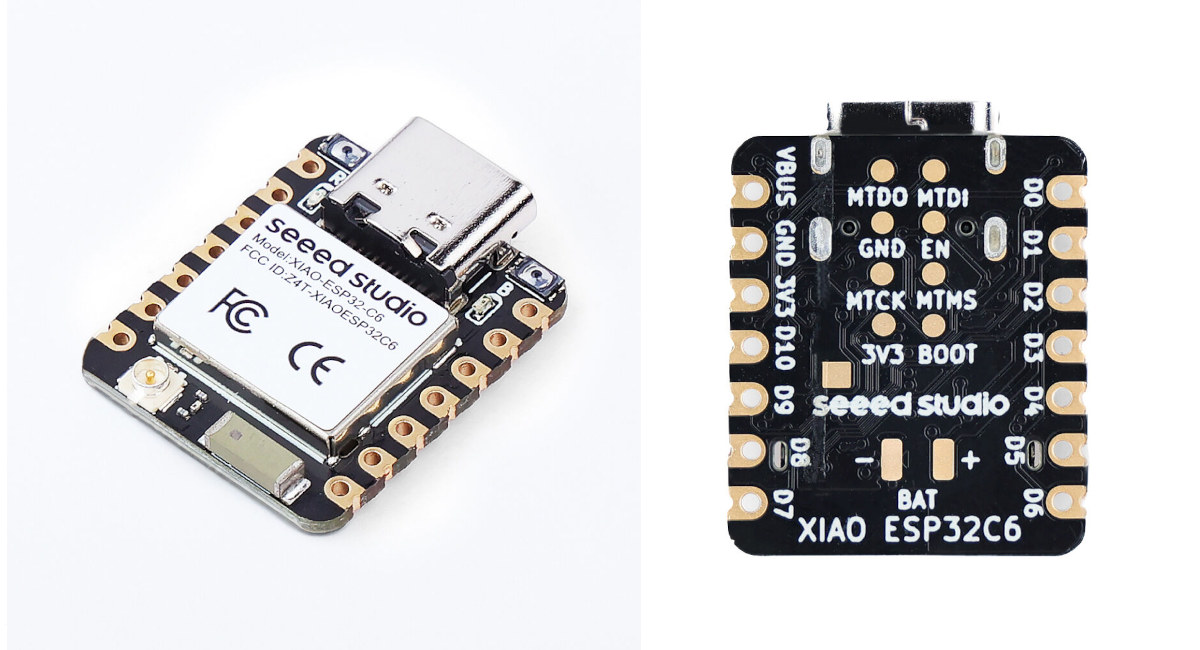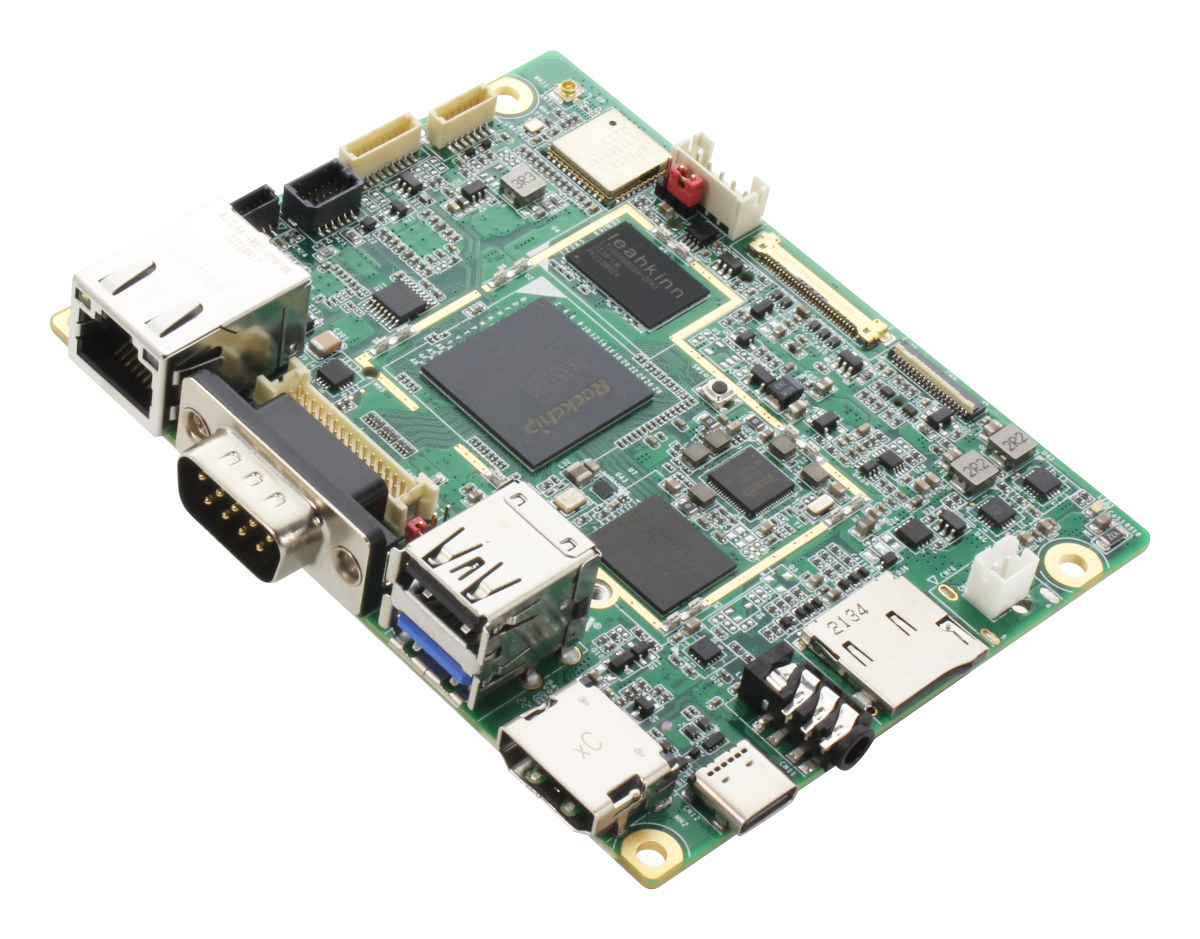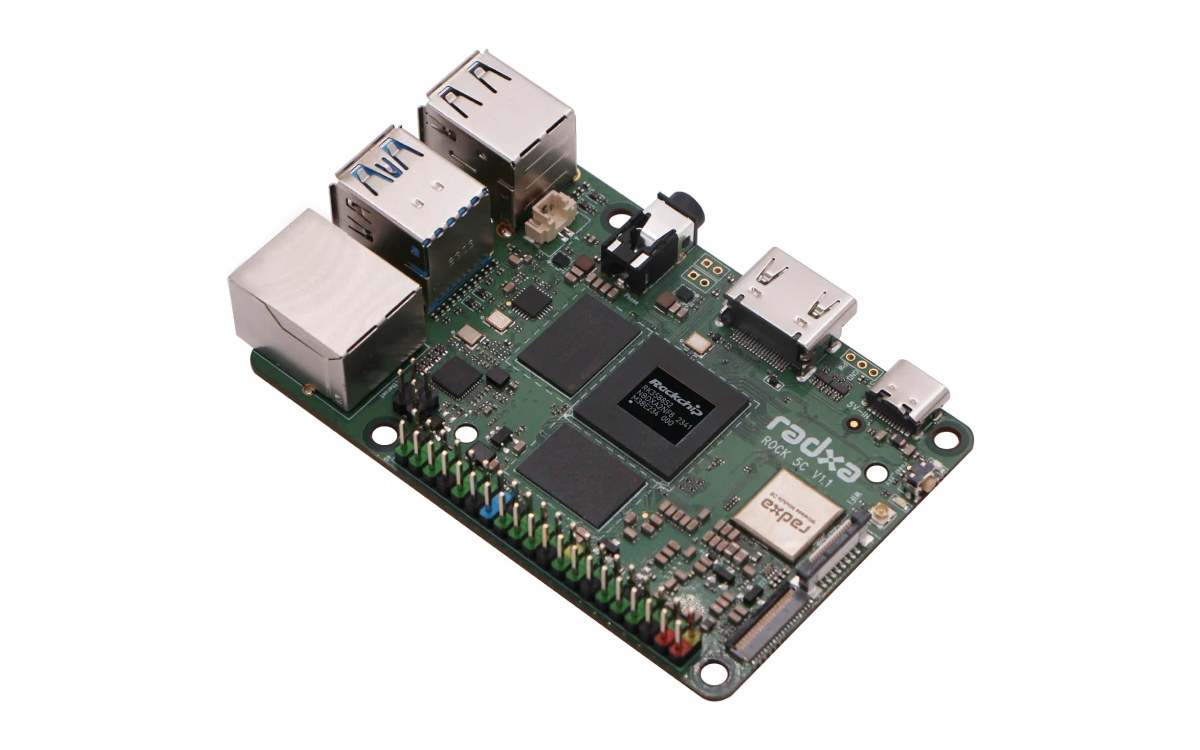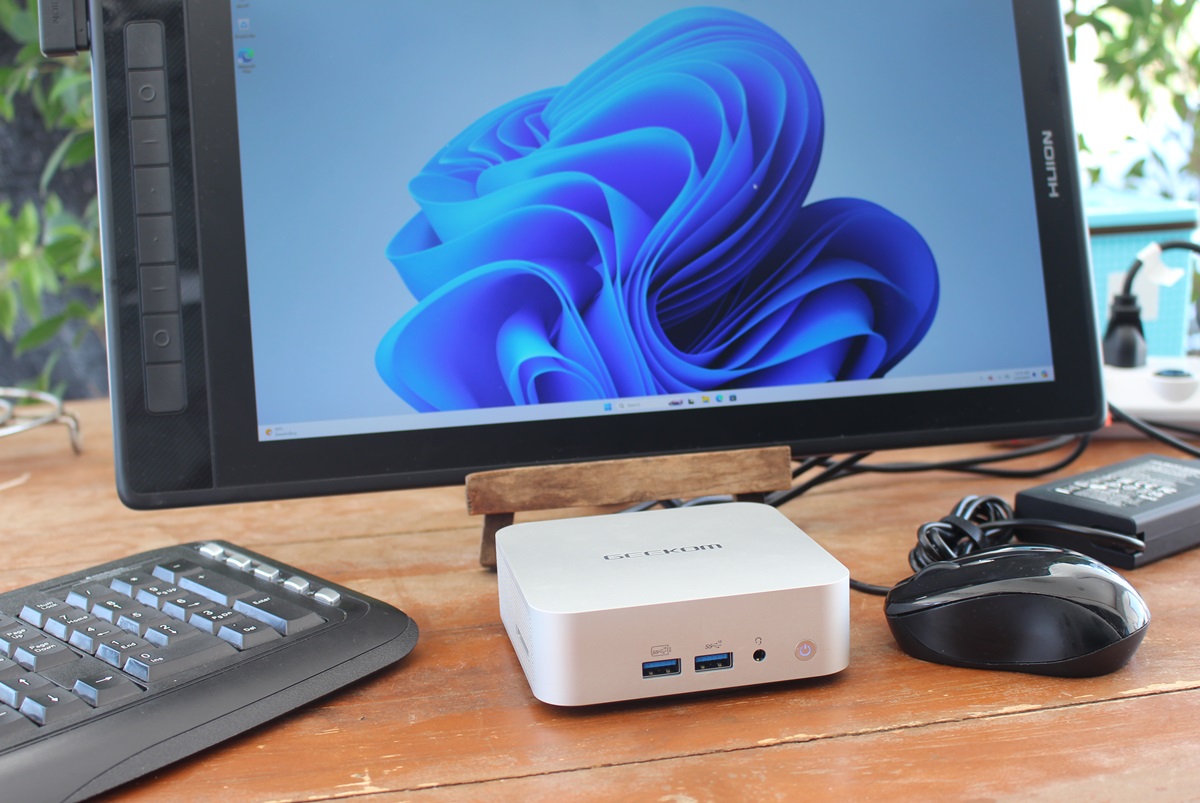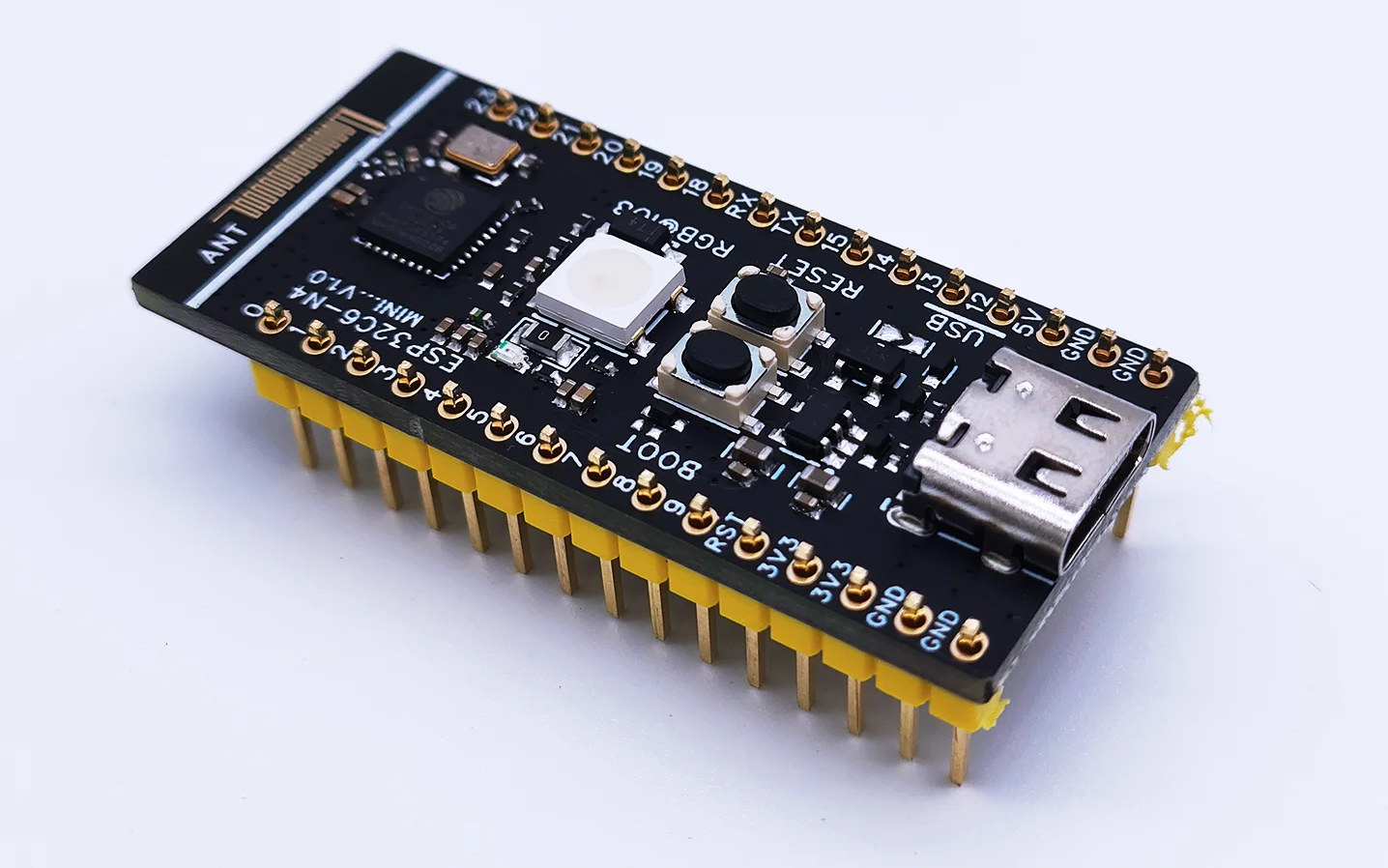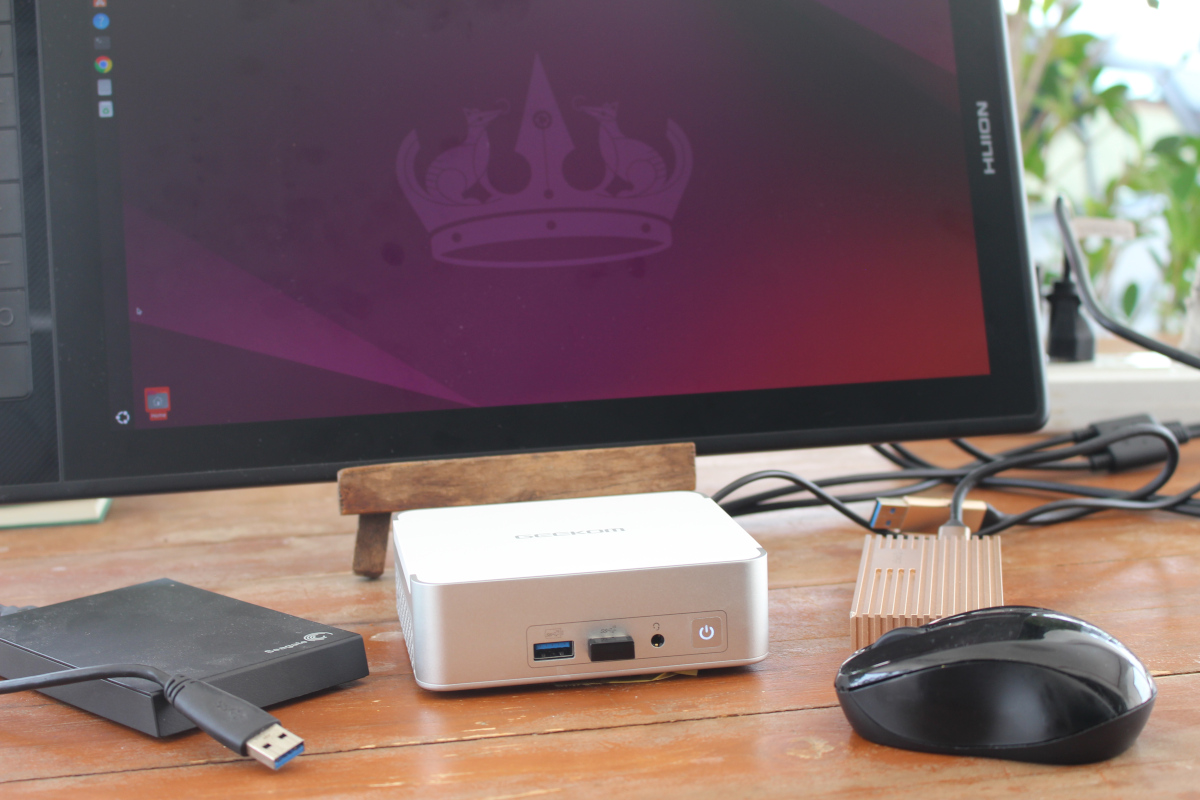In the first part of the review, we’ve already gone through a teardown and an unboxing of the GEEKOM A8 AI mini PC powered by an AMD Ryzen 9 8945HS processor with AMD Radeon 780M Graphics, 32GB RAM (upgradeable up to 64GB) and a 2TB M.2 NVMe SSD. We’ve now had more time to play with the GEEKOM A8, so we will report our experience with the Windows 11 Pro operating system in the second part of the review testing features, running benchmarks, evaluating networking and storage performance, testing the thermal design, and taking measurements for fan noise and power consumption. Software overview and features testing The System->About window in the Settings confirms we have an A8 Mini PC powered by a 4.0 GHz (base frequency) AMD Ryzen 9 8945HS processor with Radeon 780M Graphics and 32GB of RAM running Windows 11 Pro 23H2 build 22631.3593. HWiNFO64 provides more details […]
Tiny XIAO ESP32C6 WiFi, BLE, and 802.15.4 IoT board offers up to 16 GPIO pins
Seeed Studio has added yet another member to their XIAO board family with the XIAO ESP32C6 powered by an ESP32-C6 WiFi 6, Bluetooth LE 5, and 802.15.4 (Thread/Zigbee) RISC-V microcontroller and offering up to 16 GPIOs (headers + pads) in a tiny 21 x 17.5 mm form factor that’s smaller than a typical stamp and makes it one of the smallest ESP32-C6 boards around. The company started the XIAO family with the Seeeduino XIAO (Microchip SAMD21G18) in 2020, and since then they’ve made several other variants with different processors including the XIAO RP2040, XIAO ESP32C3, and XIAO ESP32S3. The XIAO ESP32C6 is the latest (10th) iteration of the board and the first to support WiFi 6, BLE, and 802.15.4 wireless connectivity. XIAO ESP32C6 specifications: Wireless MCU – Espressif Systems ESP32-C6 CPU Single-core 32-bit RISC-V clocked up to 160 MHz Low-power RISC-V core @ up to 20 MHz Memory – 512KB […]
GEEKOM Mini IT13 Core i9-13900H mini PC is now $150/£150 cheaper (Sponsored)
GEEKOM has launched another mini PC promotion, this time for the MINI IT13 equipped with a powerful Intel Core i9-13900H 14-core/20-thread processor coupled with 32GB DDR5 and an ultra-fast 2TB NVMe SSD. You can now get the Core i9 mini PC for $679 or £619, or in other words, at a $150 or £150 discount on GEEKOM US or GEEKOM UK respectively, and the company also told us the promotion is active on GEEKOM Canada and Australia websites. The mini PC can drive up to four 4K displays through HDMI 2.0 and USB4 connectors, supports 2.5GbE and WIFi 6E networking, and offers plenty of expansion options with six USB ports from USB 2.0 to USB4, an additional M.2 2242 SATA SSD socket, and a 2.5-inch SATA slot. GEEKOM Mini IT13 specifications: SoC – Intel Core i9-13900H 13th Gen Raptor Lake processor with 14 cores, 20 threads up to 5.40 GHz, […]
AAEON RICO-3568 is a Pico-ITX Plus board powered by a Rockchip RK3568 SoC
AAEON RICO-3568 is a Pico-ITX Plus single board computer powered by a Rockchip RK3568 quad-core Cortex-A55 AI SoC, up to 8GB LPDDR4, 16GB eMMC flash, four display interfaces (HDMI, LVDS, eDP, MIPI DSI), gigabit Ethernet, and various expansion headers for industrial applications. Most have already heard about the Pico-ITX form factor, but it’s the first time I’ve ever come across a Pico-ITX Plus board. It looks like it’s an AAEON-specific “standard” right now, with the Pico-ITX Plus boards (100x80mm) being slightly wider than Pico-ITX SBCs (100x72mm). AAEON RICO-3568 specifications: SoC – Rockchip RK3568 CPU – Quad-core Cortex A55 processor at up to 2.0 GHz GPU – Mali G52 GPU with support for OpenGL ES 1.1/2.0/3.2, OpenCL 2.0, Vulkan 1.1 VPU 4Kp60 H.264, H.265, VP9, 1080p60 MPEG-4/-2/-1, VP8, and VC1 video decoder 1080p60 H.264/H.265 video encoder AI accelerator – 0.8 TOPS NPU System Memory – 2GB, 4GB, and 8GB LPDDR4 Storage […]
Radxa ROCK 5C (Lite) SBC features Rockchip RK3588S2 or RK3582 SoC, WiFi 6, Raspberry Pi PCIe FFC connector
First came the ROCK 5B pico-ITX SBC, then the Raspberry Pi 4-sized ROCK 5A board, and now Radxa has launched the Radxa ROCK 5C and 5C Lite single board computers powered by respectively Rockchip RK3588S2 octa-core and RK3582 hexa/octa-core “Lottery” processors. The ROCK 5C (Lite) design is very similar to the ROCK 5A, but there are some notable differences. First, it replaces the two micro HDMI ports with a single HDMI port, then it removes the Key M socket for M.2 wireless modules to make place for a built-in WiFi 6 and Bluetooth 5.4 module plus a Raspberry Pi PCIe FFC connector, and finally, the ROCK 5C does not support an SPI flash module anymore. The specifications of the ROCK 5C and ROCK 5 Lite SBC can be found in the table below. Both processors are new, so let’s have a look. First, how does RK3588S2 differ from RK3588S? They […]
GEEKOM A8 (AMD Ryzen 9 8945HS) AI mini PC review – Part 1: Specs, unboxing, teardown, and first boot
GEEKOM A8 is an AI mini PC based on the powerful AMD Ryzen 9 8945HS (or Ryzen 7 8845HS) AI processor with AMD Radeon 780M Graphics, up to 64GB DDR5 memory, up to 2TB M.2 NVMe SSD support for up to four display up to 8K resolution, and comes preloaded with Windows 11 Pro operating system. The mini PC is equipped with two HDMI 2.1 ports, two USB-C ports with DisplayPort Alt mode, 4x USB 3.2 Type-A ports, 2.5GbE, a WiFi 6E and Bluetooth 5.3 module, and a stereo headset jack. GEEKOM sent us a sample of the A8 Mini PC with an AMD Ryzen 9 8945HS 8-core/16-thread processor, 32GB DDR5, and a 2TB M.2 NVMe SSD with Windows 11 Pro for review this time. We’ll start by listing some specifications, doing an unboxing, going through a teardown, and booting Windows 11. In the second and third parts of the […]
WeAct ESP32-C6-Mini is the cheapest ESP32-C6 board so far going for less than $4
WeAct ESP32-C6-Mini is a small development board based on Espressif Systems ESP32-C6 WiFi 6, Bluetooth, and 802.15.4 wireless SoC that’s the cheapest we’ve seen so far selling for just $3.86 on Aliexpress. WeAct was one of the first companies to launch a third-party ESP32-C6 development board year with the price starting at just $6. I still remember the excitement around the first $5 ESP8266 WiFi 4 module when we first covered it in 2014, and ten years later, we can get a full $4 development board with a more powerful 160 MHz RISC-V microcontroller, WiFi 6, Bluetooth 5.0, and an 802.15.4 radio for Thread, Zigbee, and Matter. WeAct ESP32-C6-Mini specifications: Wireless SoC – ESP32-C6-N4 CPU Single-core 32-bit RISC-V clocked up to 160 MHz Low-power RISC-V core @ up to 20 MHz Memory – 512KB SRAM, 16KB low power SRAM Storage – 320KB ROM, and 4MB flash Wireless – 2.4 GHz […]
GEEKOM XT12 Pro review – Part 3: Ubuntu 24.04 on an Intel Core i9-12900H mini PC
We’ve already looked at GEEKOM XT12 Pro specifications and hardware design in the first part of the review and followed up by reviewing the Intel Core i9-12900 mini PC with Windows 11 Pro in the second part. We’ve now had time to review the GEEKOM XT12 Pro mini PC with the just-released Ubuntu 24.04 operating system to evaluate the compatibility and performance in Linux. In this third and final part of the review, we’ll test features in detail, evaluate performance with benchmarks, test storage and network capabilities, check YouTube video playback at 4K and 8K resolution, perform a stress test to check the cooling solution and provide numbers for fan noise and power consumption of the GEEKOM XT12 Pro mini PC. Ubuntu 24.04 installation and system information We’ve resized the Windows 11 by half in order to install Ubuntu 24.04 in dual boot configuration. After that, we inserted a USB […]


